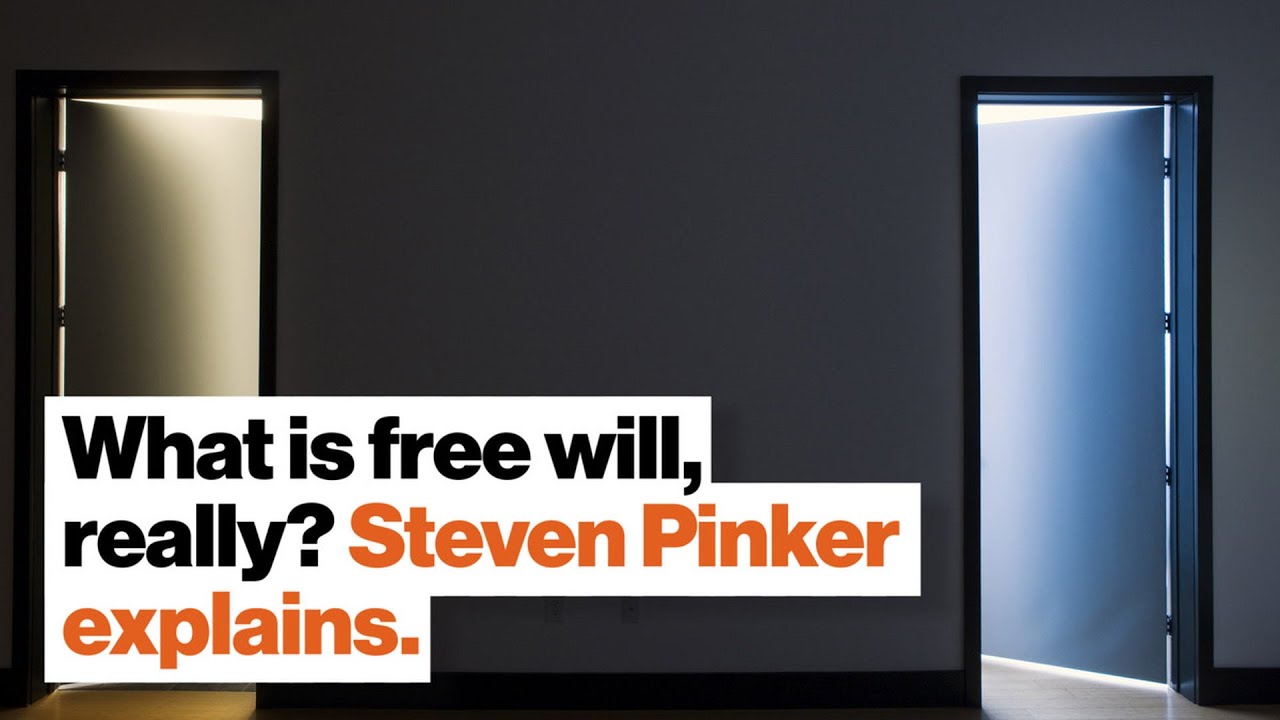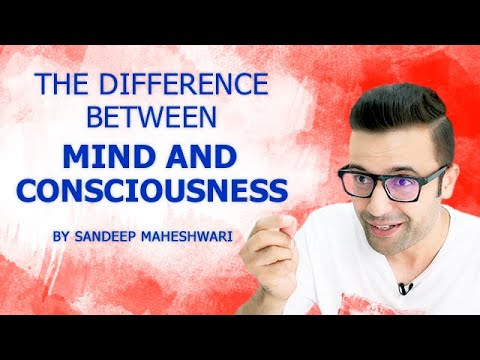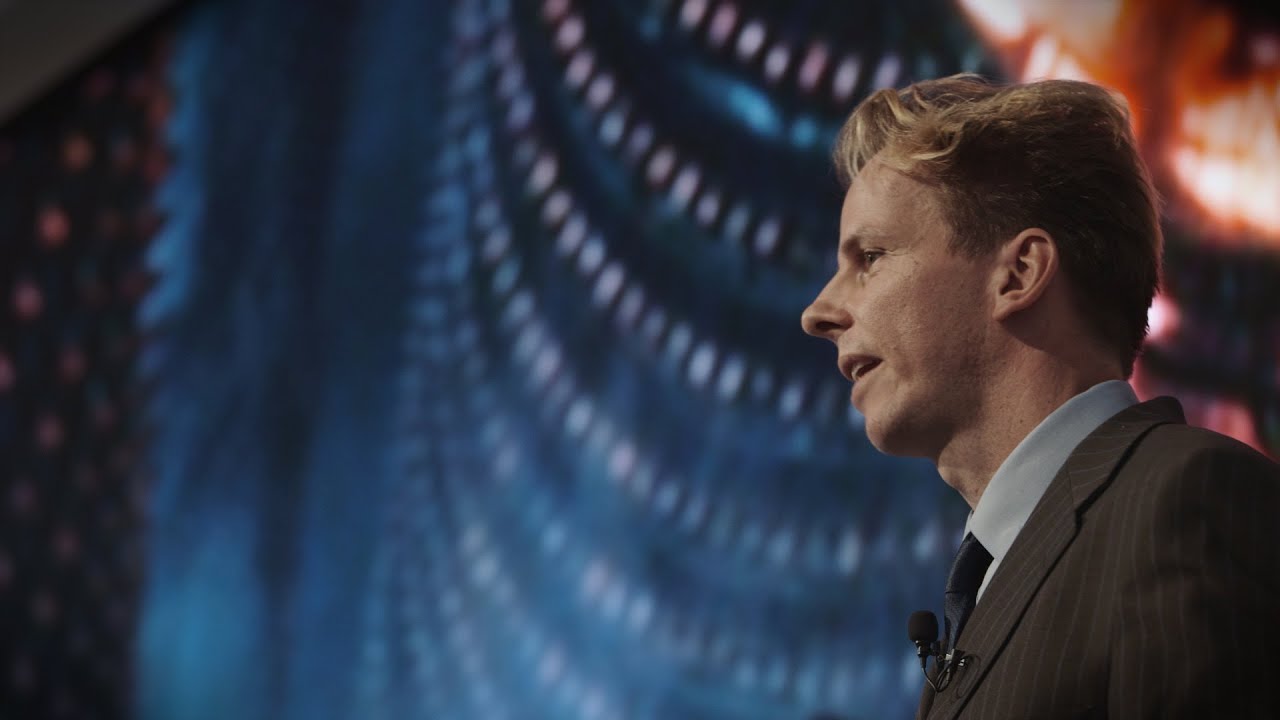Big Think
New videos DAILY: https://bigth.ink
Join Big Think Edge for exclusive video lessons from top thinkers and doers: https://bigth.ink/Edge
———————————————————————————-
Free will exists, but by no means is it a miracle.We use “free will” to describe the more complex processes by which behavior is selected in the brain. These neurological steps taken to make decisions respect all laws of physics.”Free will wouldn’t be worth having or extolling, in moral discussions, if it didn’t respond to expectations of reward, punishment, praise, blame,” Pinker says.
———————————————————————————-
STEVEN PINKER
Steven Pinker is an experimental psychologist who conducts research in visual cognition, psycholinguistics, and social relations. He grew up in Montreal and earned his BA from McGill and his PhD from Harvard. Currently Johnstone Professor of Psychology at Harvard, he has also taught at Stanford and MIT. He has won numerous prizes for his research, his teaching, and his nine books, including The Language Instinct, How the Mind Works, The Blank Slate, The Better Angels of Our Nature, The Sense of Style, and Enlightenment Now: The Case for Reason, Science, Humanism, and Progress.
———————————————————————————-
FOLLOW BIG THINK:
📰BigThink.com: https://bigth.ink
🧔Facebook: https://bigth.ink/facebook
🐦Twitter: https://bigth.ink/twitter
📸Instagram: https://bigth.ink/Instragram
📹YouTube: https://bigth.ink/youtube
✉ E-mail: info@bigthink.com
———————————————————————————-
TRANSCRIPT:
STEVEN PINKER: I do believe that there is such a thing as free will but by that I do not mean that there is some process that defies the laws of physical cause and effect. As my colleague Joshua Greene once put it, it is not the case that every time you make a decision a miracle occurs. So I don’t believe that. I believe that decisions are made by neurophysiological processes in the brain that respect all the laws of physics. On the other hand it is true that when I decide what to say next when I pick an item from a menu for dinner it’s not the same as when the doctor hits my kneecap with a hammer and my knee jerks. It’s just a different physiological process and one of them we use the word free will to characterize the more deliberative, slower, more complex process by which behavior is selected in the brain.
That process involves the aggregation of many diverse kinds of information – our memory, our goals, our current environment, our expectation of how other people will judge that action. Those are all information streams that affect that process. It’s not completely predictable in that there may be random or chaotic or nonlinear effects that mean that even if you put the same person in the same circumstance multiple times they won’t make the same choice every time. Identical twins who have almost identical upbringings, put them in the same chair, face them with the same choices. They may choose differently. Again, that’s not a miracle. That doesn’t mean that there is some ghost in the machine that is somehow pushing the neural impulses around. But it just means that the brain like other complex systems is subject to some degree of unpredictability. At the same time free will wouldn’t be worth having and certainly wouldn’t’ be worth extolling in world discussions if it didn’t respond to expectations of reward, punishment, praise, blame.
When we say that someone – we’re punishing or rewarding someone based on what they chose to do we do that in the hope that that person and other people who hear about what happens will factor in how their choices will be treated by others and therefore there’ll be more likely to do good things and less likely to do bad things in the expectation that if they choose beneficial actions better things will happen to them. So paradoxically one of the reasons that we want free will to exist is that it be determined by the consequences of those choices. And on average it does. People do obey the laws more often than not. They do things that curry favor more often than they bring proprium on their heads but not with 100 percent predictability. So that process is what we call free will. It’s different from many of the more reflexive and predictable behaviors that we can admit but it does not involve a miracle.
Source




By his description of free will…dogs and cats have free will.
Free will implies an effect without cause, which is clearly illogical, therefore there is no free will. You don’t need free will to make decisions. Computers can make decisions based on input and goals, and they don’t have free will.
“Aggregation of many diverse kinds of information. Our memories, our goals, our current environment, our expectation of how other people will judge that action”. Isn’t that what free will is? Making a decision based on the info you have?
Twins aren’t a good example to show that there is random chance and unpredictability in the decision making system. It should be obvious, but twins having the same genes does not guarantee identical expression of the genes, and growing up in the same household does not guarantee the same upbringing or disposition later in life. They will see different sides of their parents, have different encounters with people, etc that will cause them to make different decisions. Not due to random chance but variation.
I do think there is random chance, but people making different decisions for the same choice isn’t proof of chance. Someone could just be in a different mood.
We have free will, but what we do with our free will is determined by many aspects of reality outside our minds.
If a being or conscience could exist that could see every event to our lives down to the last, smallest detail – then no, free will doesn’t exist. Said being could be able to predict our every action, even me writing this right now. It would know that and even that I’m writing about it. So given that theory, we don’t have true free will, even if that theory of the all-knowing being does not existed of yet. Everything could be reduced to data if everything we do could be quantified and exactly recorded. The only way Free Will exists in that circumstance, is if there is an incalculably small chance that someone does something random. Which should be impossible in said scenario. I hate it, but it seems the most logical in the end about Free Will. It all comes down to if we can truly be random.
If free will existed, none of you would.
Free will is simple.
If you're doing something without pressure from the others, you're doing it by your free will.
There's no another free will, all your choices are predetermined from the beginning of the universe.
Wonderfully explained. There is no way to distinguish our will than true free-will hence they are equivalent
Free will is what Pinker and Epstein had on the plane and at parties, and what the girls with them did not.
He talks with way too much confidence about something we currently know nothing about. We don't even know what consciousness is and how it can exist, so currently we have no idea what free will is.
Pinker is Cancelled — this reactionary curmudgeon belongs on PragerU
Well the thought process is similar to the knee jerk reaction … only diff is we we are not sure of the cause …… so we call it "FreeWill"
Knee-jerk reflex is different from our higher level thinking in a same way a 5-line python code is different from all the Google software currently executed. Yet, both complicated software and our brain is incapable of acting freely in any way. It's just fairly deterministic execution based on prior learned input sprinkled with some level of randomness.
We do not know what thought we're going to have next. It occurs when it occurs.
What a shit title to this video. I would call it "What Steven Pinker thinks about Free Will" .
Even identical twins are going to be different to some degree, and have different needs. So it would make sense to me that they would make different choices based upon their differing needs
Am I the only one who misread title as "What is free Wifi"? Just Youtube after a bar things perhaps
Just because we don’t have the intelligence to predict every effect/reaction does not mean that said reaction was not determined by natural law
What someone eats is their free will? Lol, really? #pinkerfatshaming
Here is free will. (red or blue) red….(red or blue) red…(red or blue) blue…(red or blue) red ….(red or blue) red….(red or blue) blue… (red or blue) blue….(red or blue) red….(red or blue) blue….(red or blue) red…(red or blue) red….(red or blue) blue…(red or blue) blue… (red or blue) blue…(red or blue) red…(red or blue) red…(red or blue) blue…(red or blue) red.
Everyone can immediately and without consequence pick red or blue.
I am making a FREE choice every single time.
I am deciding which color. And given the same choice time and time again, I am able to choose a different color when given the same choice.
I can do this as rapidly as someone saying (red or blue).
There is no reward. There is punishment or expected outcome. There is no prediction that can be made, any more than a roulette wheel landing on (red or black). I'll pick a color. I will make a decision without even giving it much of any thought, because all it requires is that I pick one. It doesn't matter which one, but in the end, I will pick one of them.
We have the free will make a choice.
I'm not religious but some higher power is pulling the strings in this world..I saw a premonition of the 2001 WTC attacks..1 week before it ever happened ..read it in the Jan 2004 edition of Fate magazine
This is incorrect. In the same exact situation, we would always choose the same thing
Free will: the ability to have chosen otherwise.
This is the definition of over thinking and issue. All a bunch of white noise to me.
Let me guess, after they destroy the lives of a lot people when the “Abovemen” or “ the Superman” tight this violent retarded experiment to the last election; the “beyond comprehend superior minds” decided that it turns out free will it wasn’t a black or white things like they said it was.🙄
This guy has NO idea what free will is or where it is made…. he just said it was created in the brain.
No mention of the inherant randomness of quantum field intetactions
First big think in a year I've watched
arguments against free will are bad.
You cannot have free will and believe in an all powerful, all knowing god
at the same time.
They are incompatible and lead to cognitive dissonance.
Cognitive dissonance refers to a situation involving conflicting attitudes, BELIEFS or behaviors. This produces a feeling of MENTAL DISCOMFORT leading to an alteration in one of the attitudes, beliefs or behaviors to reduce the discomfort and restore balance.
I suffered from this mental condition for twenty years as an indoctrinated Catholic.
Today I am an atheist and free of the conflict.
If you did this, “tolerate the Jews,” Lord Vader would like to see you in his office so he can discuss some things with you.
"Decisions are made by neuro physio processes in the brain" really, what about the decision not to believe that this is the cause of decisions? Is it the brain that doesn't believe this?
In a video game, one has the Free Will to control the character, but the end the result is the same; die while trying to pass from one level to the next, that is.
So, no matter how the humans try, they’re stuck in the first level; unless, the humans go into the Nirvana state.
https://youtu.be/VQxJi0COTBo 8 years ago…..he said the exact same stuff
That is volition. Free will entails the ability to choose otherwise, which we don't have.
Still not "free" will
We only have free will when we are rational 🌱🥩
It doesn’t make sense to tear innocent playful loving children 🐖🐬🐄🐑🐕🐈🐎 apart with our teeth when we can eat plants instead
Humans are just animals called human
We don’t accept this evil behavior with dogs and cats because we know it’s evil, we are trapped releasing subconscious fear created from this evil 🐕🥩🐬🥩🌱🐖🥓🐄🥩🌱 destructive behaviour needlessly creating the extinction of all life on earth, as the irrational 🌱 passive anger of tearing each other’s children apart with our teeth when we can eat plants instead
Human is the name for an ape
A vicious circle ⭕️
Same fear 👩🦳🥩🐬🥩🐕🥩🐖🥓🐄🥩🐑🥩🐎🥩🐈🥩🐓🥩🦃🥩🐅🥩🦌🥩🦘🥩🐂🥩🐋🥩🦍🥩🐟🥩🐍🥩
Duh
Simulation theory not mentioned a single time. Goes to show how little steven pinker looks into the technological possibilities of the future.
The crazy thing to consider is that, for any given experience or decision, by the time we're aware of it a series of biochemical-electrical functions have already occurred…utterly beyond our awareness or control. In that context the freedom of Free Will is…a bit hazy.
Causation itself is a miracle.
but if you 'put the person back in the same circumstance' then they will always choose the same thing. Pinker seems not to include the brain-state as part of the situation.
Correct. Free will is not a choice that is free of reliable cause and effect. Free will is a choice that is free of coercion and other undue or extraordinary influences (brain tumor, hallucinations, hypnosis, etc.). That's the operational definition used in questions of moral and legal responsibility.
Unfortunately, there has been the spread of a mental virus suggesting that causal necessity/inevitability is an entity that goes about in the world making stuff happen, and that it, and not us, is the entity that controls our choices and our destiny.
But that is a superstitious myth. Causal necessity is not an object or a force that goes around causing things. It is only a comment, a simple statement asserting that every event has a history of reliable causation, of one thing leading to another, that necessarily lead to the event. Events are the reliable product of the objects and forces that make up the physical universe. The objects and forces are the causes, and the event is the effect. And, guess what? We happen to be one of those actual objects that make up the physical universe. And we do go about causing stuff to happen, all the time.
Causation never causes anything. Determinism never determines anything. Both concepts are about the reliable behavior of actual objects and forces. They are about us! They do not replace us.
“Besides objective limitations, we are self-determining (physical self, including the brain) to the extent that we believe we are self-determining.”
~ Me. Thoughts and challenges?